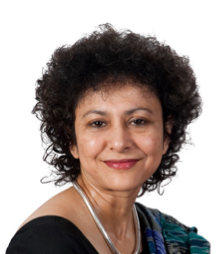The UN Special Rapporteur on the promotion and protection of the right to freedom of opinion and expression, Ms Irene Khan, has criticized the responses by countries in their efforts to check disinformation, noting that States have resorted to disproportionate measures such as Internet shutdowns as well as vague and overly broad laws to criminalize, block, censor and chill online speech and shrink civic space.
Saying that these measures are not only incompatible with international human rights law and contribute to amplifying misperceptions, fostering fear and entrenching public mistrust of institutions, she stressed that the fundamental challenge for States, companies and the media is to restore public trust in the integrity of the information order. In her report presented to the 47th session of the UN Human Rights Council in Geneva from June 21 to July 9 2021, the Special Rapporteur, while acknowledging the complexities and challenges posed by disinformation in the digital age, noted with regret that the responses by States and companies have been problematic, inadequate and detrimental to human rights.
In her report presented to the 47th session of the UN Human Rights Council in Geneva from June 21 to July 9, 2021, the Special Rapporteur, while acknowledging the complexities and challenges posed by disinformation in the digital age, noted with regret that the responses by States and companies have been problematic, inadequate and detrimental to human rights.
In drafting the report, the Special Rapporteur benefited from the submissions of 119 civil society organizations and academic entities, three international organizations, three Member States and three companies, as well as several online consultations with civil society organizations and meetings with the Member States, social media companies and experts.
She noted that while finding appropriate responses to disinformation is difficult because the concept is undefined and open to abuse, and because the size and nature of the problem are contested in the absence of sufficient data and research, State responses have often been problematic and heavy-handed with the resultant detrimental impact on human rights. In addition, she said while companies play a major role in spreading disinformation, their efforts to address the problem have been woefully inadequate.
Her view is that disinformation online is politically polarizing, hinders people from meaningfully exercising their human rights and destroys their trust in governments and institutions. She adds that disinformation can also have serious consequences for democracy and human rights, as recent elections, the response to the coronavirus disease (COVID-19) pandemic and attacks on minority groups have shown.
While noting that disinformation, as a harmful tool, is not new, Khan pointed out that the targets and victims are usually a small proportion of the people but the impact can be amplified by various actors for political, ideological or commercial motives at an unprecedented scale, speed and reach. She however advised that the right and definitive application of digital technology can ensure a peaceful resolution to the fundamental problems.
According to her, “it is easy–but dangerous–to lose sight of the value that digital technology offers to democracy, sustainable development and human rights, or the vital importance of the right to freedom of opinion and expression in that equation. That is why attempts to combat disinformation by undermining human rights are short-sighted and counterproductive. The right to freedom of opinion and expression is not part of the problem, it is the aim and the means for combating disinformation’’.
The Special Rapporteur, therefore, called for multi-dimensional and multi-stakeholder responses that are well-grounded in the international human rights framework and urged companies to review their business model and States to recalibrate their responses to disinformation; enhancing the role of free and diverse media; investing in media and digital literacy, empowering individuals and rebuilding public trust.







